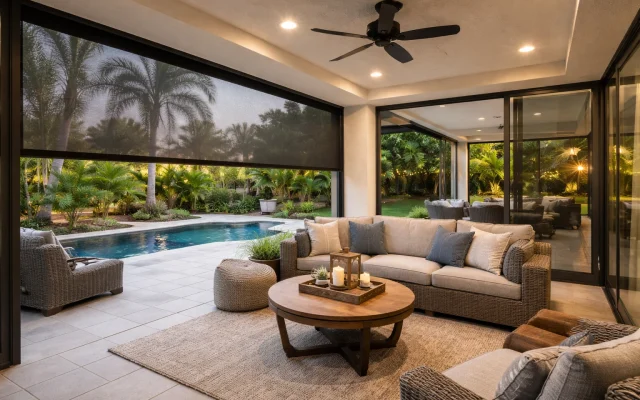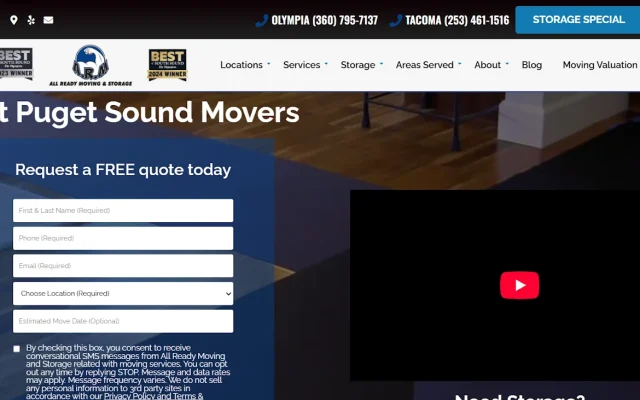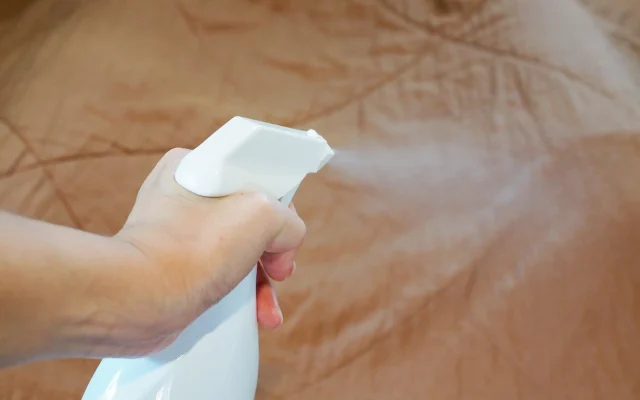Lawn mowers upkeep might not be the flashiest part of managing a rental property, but it’s easily one of the most important. The lawn mower plays a direct role in curb appeal, property value, tenant satisfaction, and long-term maintenance savings. Whether you’re overseeing a single rental home or managing a portfolio of properties, this unsung tool is key to making great first impressions.
Think about it: before a tenant ever steps inside, they see the lawn. If it’s freshly cut and neatly edged, it signals care and professionalism. If it’s overgrown or patchy, that’s a red flag. That’s why smart landlords and property managers treat lawn mowers not as just a landscaping tool, but as an investment in tenant retention and rental success.
First Impressions Are Everything
When a potential renter drives up to a property, their eyes don’t immediately scan the windows or kitchen appliances. They notice the lawn.
Patchy? Overgrown? Looks like a jungle? That’s an instant strike.
Neatly trimmed? Green and fresh? Now we’re talking. A tidy lawn gives the impression that the property is well-maintained from the inside out. It sets a tone, one that says “we care,” “we’re professional,” and “we’ll take care of you.”
Lawn mowers are the front-line defense against curb appeal killers. Keeping a regular mowing schedule ensures that even in hot summers or rainy seasons, the rental stays attractive.
It’s Not Just About Aesthetics, It’s About Safety and Value
Unkempt lawns can harbor more than bad looks. Tall grass and weeds invite pests, think ticks, snakes, and rodents. They also create fire hazards in dry areas. That’s a lawsuit waiting to happen.
For landlords and property managers, that’s not a risk worth taking.
Routine mowing lowers these risks significantly. It keeps everything neat, visible, and under control. It also makes it easier to spot other issues, like sprinkler malfunctions or uneven terrain, that could become expensive later.
And let’s not forget this: well-maintained landscaping increases property value. Even if you’re not selling, it influences rental pricing. Clean lawns help justify premium rent rates. Don’t believe it? Ask any prospective tenant how they’d feel about paying top dollar for a home that looks neglected from the street.
Tenant Expectations Are Higher Than Ever
Renters today expect more. The boom of apartment complexes with manicured lawns, rooftop gardens, and pet-friendly parks has raised the bar.
Even in single-family rental homes or duplexes, tenants expect outdoor spaces to look presentable and be usable. If they’re paying rent, they want the whole package, inside and out.
That means the lawn has to be mowed. Edges trimmed. Grass healthy. No weeds poking out like unwelcome guests.
Lawn mowers help deliver on those expectations. Whether you’re managing five properties or fifty, consistency is key. It’s better to create a routine than scramble when the property starts looking scruffy or worse, when a tenant complains.
Outsourcing vs. DIY: What Works Best?
This is the age-old debate in property management. Should you hire a landscaping service, or should you handle mowing in-house?
Here’s the honest answer: it depends on your scale and budget.
If you’re managing a multi-unit complex, outsourcing makes sense. It’s efficient, scalable, and consistent. But if you’re working with single-family homes or smaller buildings, buying your own lawn mower might save you thousands each year.
And we’re not just talking about push mowers from the hardware store. There’s a wide range of commercial-grade models built specifically for property managers who want to handle their own lawn care.
Look for models that are:
- Easy to start and maintain
- Suitable for different grass types and terrain
- Efficient with fuel or battery usage
- Designed for durability with minimal breakdowns
Bonus tip: If you choose to maintain your own mower, keep an eye on key components like spark plugs, blades, and especially lawn mower belts, they’re essential for consistent cutting performance. A belt that’s loose or worn down will throw everything off and make mowing more frustrating than productive.
Seasonal Shifts Mean Strategic Mowing
Lawn care isn’t one-size-fits-all throughout the year. Grass grows differently in spring, summer, and fall, and property managers need to adapt.
- Spring: This is when grass grows fast. Mow frequently, but never too short. Scalping the lawn in early growth stunts it.
- Summer: As temps rise, grass can go dormant. Mow higher and less often to avoid stress and browning.
- Fall: It’s time for the final trims. Mowing until growth stops helps prevent pests and fungus during the winter months.
Each season has its own rhythm. Smart mowing isn’t just frequent, it’s strategic. And good property managers take note.
Mowing Is Also a Tenant Retention Tool
Here’s something that doesn’t get said enough: a beautiful lawn builds pride.
When tenants see that the outside of their home is maintained, they’re more likely to care for the inside. They’re more likely to stay. More likely to renew. And more likely to recommend the place to others.
A lawn mower may not seem like a loyalty program, but in subtle ways, it is.
This is especially true when lawn care is included in rent. It’s a value-add that makes tenants feel like they’re getting something extra. They don’t have to worry about finding a landscaper or hauling out the mower every week. That convenience builds goodwill. And goodwill keeps units full.
Sustainability Matters, Too
Eco-conscious renters are paying attention. They’re asking questions about energy use, water conservation, and yes, even lawn care practices.
If you’re managing rental properties in urban or progressive areas, this matters. Using electric mowers or models with low emissions is a great selling point. So is mulching grass clippings instead of bagging, this adds nutrients back into the soil and cuts down on landfill waste.
Even the smallest mowing decisions can align with a greener image. That image appeals to the modern renter.
Maintenance: The Hidden Hero of Efficiency
You’ve heard the saying: “Take care of your tools, and they’ll take care of you.”
That couldn’t be more true with lawn mowers.
Regular maintenance prevents expensive breakdowns. It also ensures that every mow is clean, sharp, and quick. No missed patches. No sputtering motors.
Key maintenance tasks include:
- Changing the oil
- Cleaning or replacing the air filter
- Sharpening blades
- Checking tire pressure
- Replacing worn belts (yep, those lawn mower belts again!)
This might feel tedious, but it’s less costly than buying a new mower or paying for rush landscaping when yours suddenly fails.
The Bottom Line
Lawn mowers might not be flashy, but they’re foundational.
For rental properties, they’re not just a means to a tidy lawn. They’re tools that increase curb appeal, reduce risk, improve tenant satisfaction, and boost long-term profitability.
So whether you manage a handful of homes or an entire community, treat your lawn mower like the asset it is. Choose it wisely. Maintain it well. And never underestimate how much value it adds to your bottom line, one fresh cut at a time.
Frequently Asked Questions (FAQs)
Lawn mowing boosts curb appeal, helps attract quality tenants, and gives the impression that the property is well-maintained. It also reduces safety risks like pests and fire hazards.
It depends on the season and grass type, but generally once a week during the growing season is ideal. Less frequent mowing may be needed during cooler months.
For smaller properties, handling it in-house can save money. Larger complexes often benefit from professional landscaping for consistency and efficiency.
Choose a model that’s durable, easy to maintain, and suitable for your property’s terrain. Commercial-grade mowers or battery-powered options are ideal for frequent use.
Tenants appreciate well-kept lawns, and it reflects positively on the landlord’s professionalism. A clean lawn can encourage lease renewals and tenant referrals.
Regularly change the oil, sharpen blades, check tires, and inspect essential parts like air filters and lawn mower belts to ensure optimal performance.
Yes, sustainability matters to modern renters. Using electric mowers and mulching grass clippings can appeal to eco-conscious tenants and elevate your property’s image.
Final Thought
Next time you look out at a neatly mowed lawn in front of one of your properties, take a second to appreciate the quiet workhorse behind it. That mower might just be doing more for your rental income than you think.







